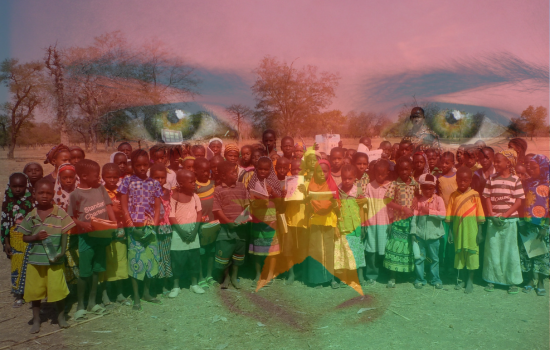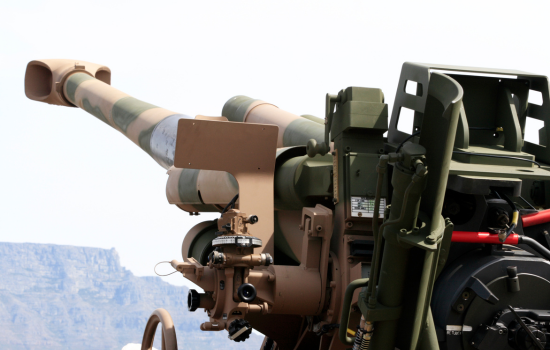The Impasse of Displaced Persons Fleeing the Jihadists in Burkina Faso
Abstract
This paper examines the severe and underreported refugee crisis in Burkina Faso, as identified by the Norwegian Refugee Council. Over the past decade, Burkina Faso has been ravaged by extremist violence from groups such as Jama’at Nusrat al-Islam wal-Muslimin (JNIM), al-Qaeda, and the Islamic State (ISIS), resulting in the displacement of two million people and a humanitarian need for 6.3 million in 2024. The situation deteriorated significantly in 2023, with 700,000 new internally displaced persons and 150,000 refugees. The conflict has devastated infrastructure, with 85% of schools and 69% of health facilities in the Sahel region closed.
The political landscape is marked by a military regime that seized power in 2022, which has strained relations with Western nations and led to a strategic shift towards Russia for military support. Russia’s increasing involvement in Burkina Faso, and other African nations, highlights a broader geopolitical trend of African countries seeking non-interfering security partnerships in response to dissatisfaction with former colonial powers. This paper explores the multifaceted implications of these alliances, focusing on Russia’s motivations for resource access and its role in the broader context of African geopolitics. Through this analysis, the paper aims to provide a comprehensive understanding of the ongoing humanitarian crisis, the regional security dynamics, and the international political shifts influencing Burkina Faso’s future.
Introduction
The largest and most ignored refugee crisis in the world, according to the Norwegian Refugee Council, is taking place in Burkina Faso, which has been devastated by deadly assaults by radical Islamic groups over the previous ten years. In 2024, an estimated 6.3 million people in Burkina Faso will need humanitarian assistance, and two million people have been displaced.
Among the ten largest displacement crises detailed in the NCR’s annual report, nine concern countries on the African continent. Examples: Sudan appears in 10th place, the Central African Republic in 8th place, Niger, 5th, Mali the 4 […] And for the second year in a row, Burkina Faso takes first place.
The situation in the country has deteriorated considerably in 2023 with more than 700,000 new internally displaced persons and 150,000 refugees in other countries. Up to 2 million people are trapped in 39 cities under siege, in a country of 23 million people.
Under a scorching temperature of 43 degrees Celsius, a few meager trees struggle to provide shade for the tents and makeshift shelters in the camps near Dori in northeastern Burkina Faso. Thousands of displaced people fled the violence of the Islamic Jihad, mainly of the JNIM (Jama’at Nusrat al-Islam wal-Muslimin) to these precarious shelters, where their future seemed hopeless.
For example, the Wendou 2 camp houses about 3,000 displaced people who fled the terror of the Islamic terrorist organizations that raided their villages, looted their property, killed their sons and raped their wives.
The jihad fighters associated with al-Qaeda or the Islamic State (ISIS), have terrorized populations in bloody attacks for almost ten years in Burkina Faso. The Sahel region pays a heavy price: a quarter of the 2 million internally displaced people in Burkina Faso come from there, according to official data from March 2023 (which has not been updated since then), Wendou camp was even attacked in September 2023 and at least 8 displaced people were killed.[1]
At the beginning of the year, 85% of the schools and 69% of the health infrastructure in the Sahel region were closed, according to the United Nations Office for the Coordination of Humanitarian Affairs (OCHA).[2] According to a rating by the Norwegian Refugee Council (NRC) published on June 3, Burkina Faso is experiencing the crisis of displaced persons. This is the second year in a row.[3] According to ACLED (The Armed Conflict Location & Event Data Project), about 8,400 people were killed in Burkina Faso last year.[4]
Like Mali and Niger, neighboring countries that have been plagued by jihadist violence for a decade, Burkina Faso is ruled by a military regime that came to power in a coup in 2022 and its relations with Western powers, in particular France, are stormy.[5]Though the attacks by the jihadists continues in some of the territory that is still under the control of the army, the authorities consistently declare successes against the jihadists.
In Burkina Faso, the ‘Military Transitional Regime’ was extended by five years. In the treaty signed on May 25, 2024 by Captain Ibrahim Traoré, the ‘quotas’ assigned to parties in the Provisional National Legislative Assembly were removed. The military regime will remain for another 5 years as part of the transition period. The duration of the transition is set for 60 months from July 2, 2024. Following this, Captain Traore’s status changes, from ‘transitional president’ to ‘President of Faso and Supreme Commander of the Army’ (Président du Faso et de Chef suprême des Armées) and he will also be able to face in the ‘presidential, legislative and municipal elections’ that must be organized at the end of this period.[6]
Dori, is a large city in northeastern Burkina Faso close to National Road 3 (RN 3) leading to Ouagadougou the capital city. Dori is a nerve center for supplying and trade of the Sahel region. Humanitarian aid arrives by air thanks to the flights of the World Food Program (WFP). Food, gasoline and agricultural inputs are still passing through, with military escort.[7] On the edge of the RN3, this hazardous area, which has turned into a frequent target for terrorists, has scores of trucks stationed in a convoy, waiting for the all-clear to depart. They also require gasoline and food.
Russia Will Help in the Fight Against the Jihadists
Sergey Lavrov, the Russian Foreign Minister, during his tour of West Africa, informed the Burkina Faso authorities that there will be a significant increase in the number of Russian instructors in Burkina Faso to help the country in its fight against jihadist groups. He also reaffirmed Russia’s willingness to continue providing military equipment to strengthen Burkina Faso’s defense capabilities against terrorist groups.[8]
Lavrov’s visit comes against the background of Russia’s desire to strengthen its alliances in West Africa, especially in light of the growing tensions with Western countries following the military invasion of Ukraine. Burkina Faso, frustrated by declining support from its former Western partners such as France and the US, has expressed increased interest in cooperation with Russia.
Russian Foreign Minister Lavrov, who has made several tours in Africa in recent years, recently visited Guinea, the Republic of Congo, Burkina Faso and Chad. Russia is emerging as the preferred security partner for a growing number of African governments in the region, who have pushed out traditional allies such as France and the United States.
At times, Russia has aggressively expanded its military cooperation with African countries by using the private security company Wagner. Russian mercenaries take/receive diverse roles in African countries ranging from protecting African leaders to assisting/training in the fight against radical extremists.
Given the current situation in Ukraine and the violence displayed by the Russian government there, Russia is requesting political support—or at the very least, neutrality—from many the 54 African nations. African countries make up the largest voting bloc at the UN and are more divided than any other group on UN General Assembly resolutions criticizing Russia’s actions in Ukraine.
Why are African countries turning to Russia? Russia took advantage and is taking advantage of political unrest and discontent in countries affected by military coups, while taking advantage of the alienation, frustration and popular anger against the former colonial power France, which is seen as a neo-colonial power, and the United States, which is trying to dictate courses of action related to human rights and freedom of expression, which many African countries They see them as hypocrisy, given the US’s close ties with some autocratic/tyrannical and corrupt leaders elsewhere.
Russia offers these countries security assistance without interfering in politics (it intensifies, in its own way, hostility to the West among the vibrant population), which makes it an attractive partner in places like Mali, Niger and Burkina Faso, Chad, Sudan, Guinea Conakry and the Central African Republic. All of them are ruled by military juntas who seized power in recent years. In return, Russia seeks access to minerals/natural resources and contracts for the sale of oil. Africa is rich in minerals, oil and other resources, which come with political and legal challenges. In practice, Russia thrives in countries ruled by juntas: it has contracts signed for mining deals through companies it controls, such as: access to gold and diamonds in the Central African Republic, cobalt in Congo, gold and oil in Sudan, chromite in Madagascar, platinum and diamonds in Zimbabwe and uranium in Namibia.
[1] Jihadist bloodshed fills Burkina displacement camps
https://uk.news.yahoo.com/jihadist-bloodshed-fills-burkina-displacement-064340641.html
[2] Statement by the Humanitarian Coordinator ad interim in Burkina Faso on the recent violence in Séguénéga, Nord region
[3] Once again, Burkina Faso is the world’s most neglected crisis
https://www.nrc.no/news/2024/june/once-again-burkina-faso-is-the-worlds-most-neglected-crisis
[4] Burkina Faso: Surge in political violence in the Center-East
[5] Burkina Faso experienced two military coups in 2022. The first, in January, brought Lt. Col. Paul Henri Sandaogo Damiba to power. He himself was dismissed in September of that year by Captain Ibrahim Traore.
Since the military coup of September 2022, Burkina Faso has chosen to diversify its international partnerships. First it turned its back on France, the former colonial power, demanding the immediate departure of soldiers deployed on its soil in early 2023 and the expulsion of diplomats. Many French media outlets were also suspended.
At the same time, Burkina Faso got closer to Russia, but also to Iran and Turkey and its two neighbors, Niger and Mali, which are also controlled by military juntas and who expelled France and the USA from their territory while getting closer to Russia.
[6] Au Burkina, le régime de transition militaire prolongé de cinq ans
https://www.lemonde.fr/afrique/article/2024/05/25/au-burkina-le-regime-de-transition-militaire-prolonge-de-cinq-ans_6235525_3212.html ;https://fr.africanews.com/2024/05/26/burkina-faso-la-transition-militaire-prolongee-de-5-ans/
[7] What the World Food Programme is doing in Burkina Faso
https://www.wfp.org/countries/burkina-faso
[8] Lavrov arrives in Burkina Faso, third leg of his Africa tour
https://www.africanews.com/2024/06/05/lavrov-arrives-in-burkina-faso-third-leg-of-his-africa-tour






